Why Does My Dog Nibble On Blankets
- 779
- dog nibble,dogs
Why does my dog nibble on blankets? Many dog owners question why their pet chews on blankets. In reality, it’s not just a blanket that dogs will nibble on; everything left laying around is vulnerable. Your dog is nibbling on blankets for a purpose, which may be straightforward to determine.
Chewing is a normal canine habit, and hunting breeds have a strong propensity to gnaw on items. Sometimes dogs do it to communicate frustration, hunger, or nervousness, but the majority of the time, it’s just regular canine activity. Please continue reading to discover Why does my dog nibble on blankets, as well as methods for redirecting this behavior.
Why Does My Dog Nibble On Blankets
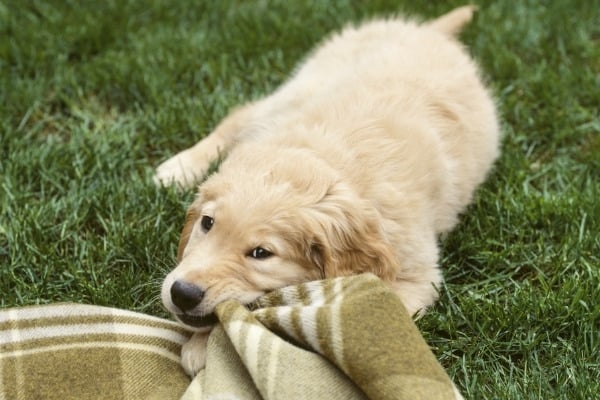
Your Canine Enjoys It
For canines, nibbling and biting are instinctive behaviors. Puppies learn to control their nibbling and to bite when playing in the litter from an early age. When one animal bites another too forcefully, they will yell or yelp to indicate that it hurt and that the bite was too strong.
While all dogs may occasionally nibble, certain breeds are likelier to do so than others. Due to their hunting instincts and disposition, spaniels and dachshunds are particularly susceptible to nibbling on blankets.
Once your dog develops the habit of nibbling, it might become amusing. You may even find that your dog occasionally nibbles you when you play together. Chewing can be calming and therapeutic for your dog. It is comparable to a baby sucking their thumb, providing them with the same sense of security and helping to calm them down. For instance, you may observe your dog nibbling on something to control their excitement when meeting new people.
Your Dog Is Hungry
Your dog may be eating well and loving the food you serve, but if they are nibbling excessively, this may indicate a deficiency in nutrients and calories. Other indicators of dietary inadequacies include hair loss, altered feces, low energy levels, and others.
Calories play a significant impact on the energy levels of dogs. If your dog’s diet lacks sufficient calories, you may observe him becoming much less active and more sedentary. Choose carefully to ensure that your dog’s food contains all the nutrients for health and vigor. Knowing how to decipher your dog’s food ingredients will allow you to select the optimal variety.
It is important to look for a statement on dog food labels indicating that the food corresponds to the Association of American Feed Control Officials’ recommendations, which contain the daily nutrients your dog needs.
Your Canine Is Bored
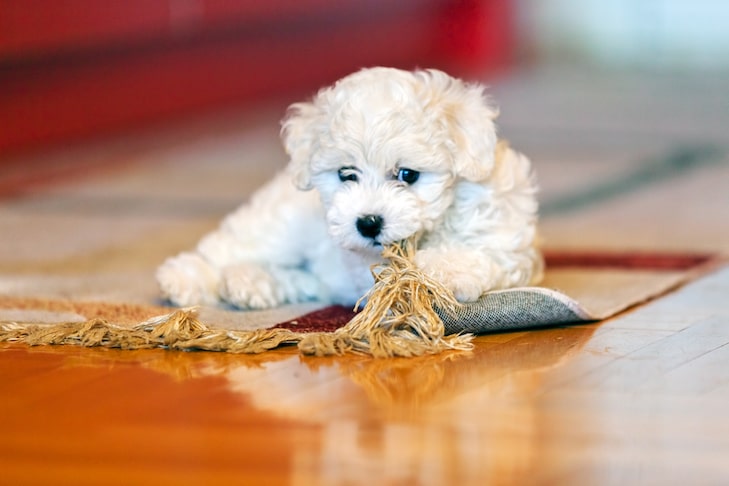
Boredom may creep in if your dog spends a great deal of time alone at home while you are at work. Your dog may begin to gnaw on objects as a diversion to find something to do. Ensure your dog has playtime with you and other dogs, particularly before you go to work, to prevent this behavior.
While at work, if someone else can play with or walk your dog, this will also prevent boredom. If this is not possible, take your dog for a walk or a run after you return home from work to release pent-up energy.
A change in routine will also keep your dog from becoming bored and provide spice to life. While dogs love a consistent daily schedule, they also like discovering new locations and experiences. This may involve walking a new route, socializing at the dog park, swimming, and occasionally eating rewards.
Dogs are unable to distinguish between acceptable and unacceptable foods. You must teach your dog what is appropriate to chew on and what is not. Purchasing toys for your dog to gnaw on while you are away a worthwhile investment; however, they will also accept a stick.
Providing your dog with enough appropriate chew toys will protect your belongings. If there is something you don’t want your dog to chew on, try applying a spray that contains a bitter flavour. The bitter flavour will prevent your dog from nibbling because he will not enjoy it.
Your Dog Is Under Stress
Dogs also experience stress, which a variety of factors can trigger. These include the death of a family member, relocating to a new home, exposure to loud noises, and spending the entire day at home alone while at work. Pacing, a decrease in food, howling and whining, and an increase in sleep activity are several tell-tale indicators that your dog is worried.
The same holds for pets suffering from separation anxiety. Dogs with separation anxiety are extremely connected to their owners and feel distressed when left alone during the day. Your dog has separation anxiety if he becomes anxious when you are about to leave for work or thrilled when you return, in addition to biting, howling, whining, and pacing.
Premature weaning is another frequent cause of dogs chewing or sucking on their blanket. This can frequently result in behavioural issues, which are rarely hazardous to your dog. Since babies are still nursing, their natural tendency is to choose the next best thing, which is frequently their warm blanket, and this behavior can persist until adulthood.
Your Canine Is In Pain
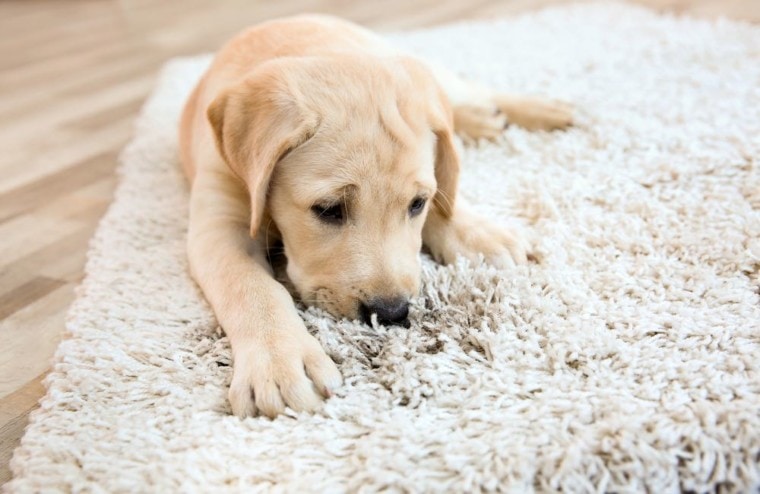
It is typically a temporary problem if your dog is in pain due to teething or allergies. There are more techniques to help your dog manage pain
Like people, teething can be painful for puppies. This is typically a painful procedure that can be alleviated with a teething toy or something to munch and nibble on. Freezing a chew toy or a damp facecloth before giving it to your dog will help numb and soothe sore gums.
Your pet can also experience allergic reactions. Excessive scratching or nibbling may indicate skin irritation caused by food, pollen, mildew, soaps, or pesticides. It would help if you determined what triggers your allergies through a process of elimination.
Is blanket Nibbling Dangerous To My Dog
No, blanket nibbling isn’t detrimental to your dog. If your dog’s blanket nibbling is an annoyance, redirect the behavior to a single blanket that belongs to your dog. Your dog can quickly learn to chew on “his blanket” and not yours.
Exceptions to this rule include anxiety and pain responses. If this is the case with your dog, you must address the underlying problem before immediately addressing the behavior.
What If Dogs Nibble On My Clothes
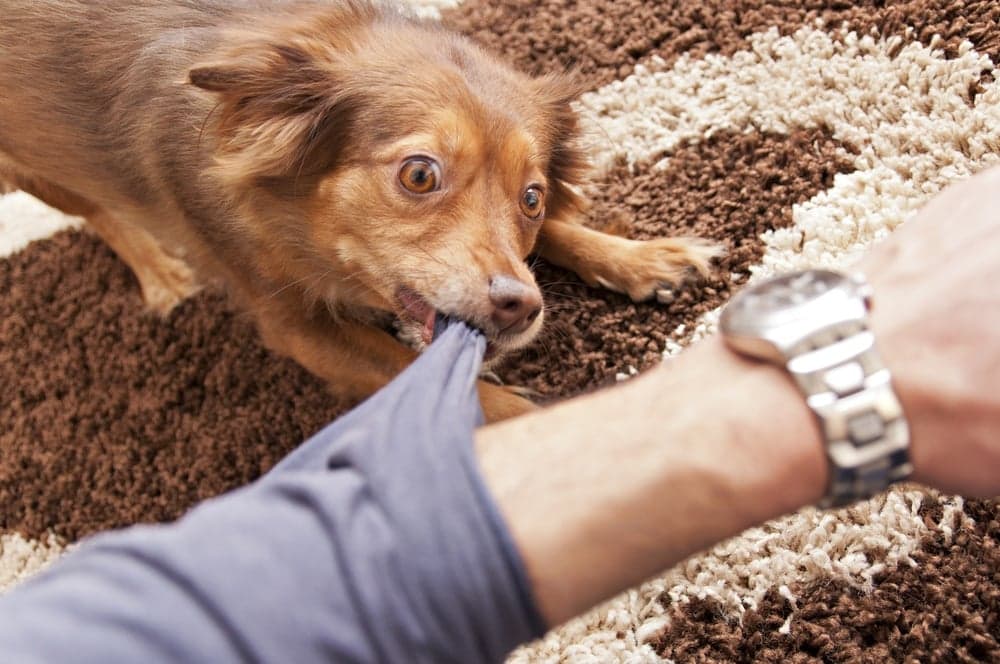
Unless you want to wear clothes with holes, you should clean up and keep your dog away from the laundry. You must prevent them from gnawing on your clothing and distract them with chew toys and playtime. One of the reasons why your dog nibbles on your clothing are that they are accustomed to your scent and wants to keep it close to them to reduce their nervousness.
How Do I Stop My Dog’s Blanket Nibbling Behavior
Why does my dog nibble on blankets? As indicated previously, shifting the chewing habit to a more appropriate object is advisable. You are providing your dog with his blanket or many chew toys he is permitted to play with can usually alleviate the issue.
Instructing your dog on what he may and cannot eat will prevent unwanted chewing. Teach your pet “NO” and “STOP.” When chewing on something he shouldn’t, issue the instruction and offer him something appropriate to chew on. When your dog chews on his belongings, lavish him with praise and positive reinforcement.
Training A Dog To Stop Nibbling On Blankets
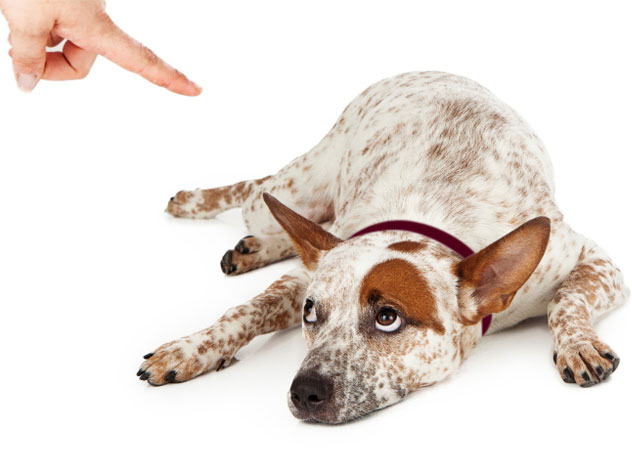
Dogs adore gnawing on blankets, cushions, and other dog bedding. This is a natural activity for them, as they originally sought consolation from their mothers by nestling against her fur or suckling on her teat. Training your dog not to nibble requires time and patience but may be accomplished with consistency and diligence. Here are three possible approaches:
- First, apply Bitter Apple Spray on your blanket or pillow that he enjoys chewing (available at most pet supply stores). Most dogs will stop instantly upon tasting this foul flavour!
- Attempt to tuck the blanket or pillow into the dog’s bed if he enjoys nibbling on it while it’s out in the open. However, if you can confine him to munch on just one spot (such as inside a dog bed), this will help minimize his total chewing and nibbling.
- Third, deny your dog access to blankets until he has been thoroughly trained not to gnaw on them. This necessitates never leaving them out where he could find them and always placing soiled blankets directly into the washing machine after use.
- Provide him with an appropriate object, like his chew toy, which he prefers to your blanket.
- Teach him the order “Leave it!” when he attempts to eat something off-limits. This can be accomplished via positive reinforcement strategies such as biscuits or giving your dog a toy to chew on instead of your blanket once they have successfully obeyed the Leave It! command.
Conclusion
Why does my dog nibble on blankets? Nibbling is a normal instinct for dogs; therefore, you should not confuse the dog by instantly reprimanding and yelling at them for the activity. Instead, provide answers to the underlying causes of these behaviors so that you can improve their quality of life. Additionally, keep an eye out for anxiety disorders that might lead to the obsessive biting of your dog. In general, nibbling is harmless and may be eliminated via regular training; you can either permit it by diverting their attention or train them to stop.
